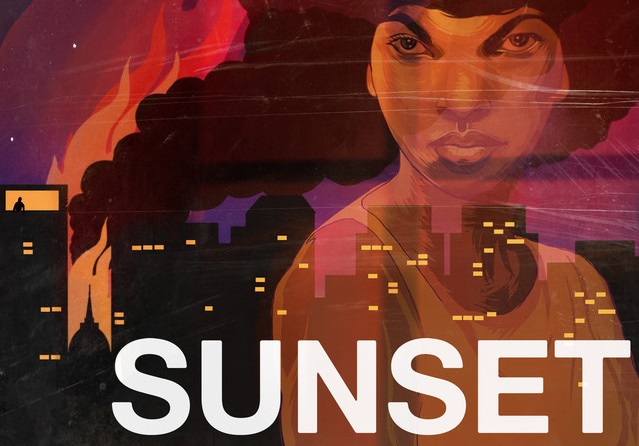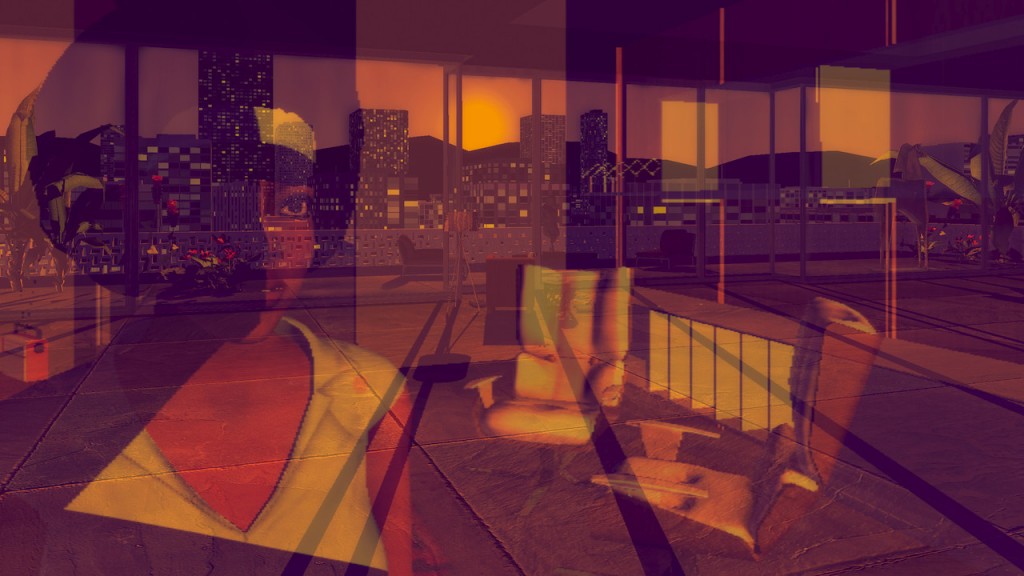I was incredibly excited to play Sunset. Tale of Tales (The Path, Bientôt l’été, Luxuria Superbia) are one of my favorite developers out there and this looked like an incredible new move for them. At least from what I’ve played so far, it appears to be one of their most mechanically “game”-like games out there. It makes sense, showing an evolution from their not-game roots (at a time when labels like not-game were more required). To be fair, it feels like they’ve packed far more emotion into their point and click exploration title than most others – and that’s my feeling after having only played a brief 3 in-game days demo.
Gabriel’s apartment is a very alien space at first, which lures Angela to experience it in different ways. As you clean and explore while he isn’t home you get an intimate look at his things and lifestyle. From the very start you can voyeuristically peek at his collection of books or even what kinds of confidential documents he leaves on the desk. Despite the absence of Gabriel, though, you can’t help but feel his changing presence as the days wear on. This penthouse is a bit of a character itself which changes with time. During the demo we see it as a fairly immaculate pad that any architect would be jealous of. Another week shows the post-party mess, leaving players to wonder just how wild and loud things became in our absence.
Although most exploration games set the protagonist as an empty vessel, Angela is also a character with her own goals, hopes, and interests. As players ride up the elevator to Gabriel’s apartment she ruminates on topics at hand. When discovering something interesting in the building she again muses on said objects. Perform her chores and depending on which response you pursue (work-focused or friendly) she will respond in a way befitting to her own characterization. This is more powerful than giving the player a disembodied 3D model to see the world through. By the demo’s third day (which is actually late in the game) that design choice to keep Angela her own person really resonated with me. Seeing her through the reflection in a glass door as she reacted to events unfolding in front of her eyes was powerful. I couldn’t help but respond in kind with her, as though we were experiencing the same terror.
The theme of Sunset itself is strong as it considers the lives of “everyday” people who are stuck in the midst of war. Is there something more that they can do? Are they simply relegated to pretending to live a life of normalcy? What about uprisings – and if they pursue them what is their role? Players must inhabit this world, learn more about Gabriel, experience war from a non-military perspective, and see just how Angela’s life unfolds. I want to continue to explore Gabriel’s home and see how it changes from week to week. There’s so much more I wish to learn about him, about the burgeoning relationship these two may foster, and simply about Angela’s intentions. Here’s hoping that the full release of Sunset is long enough to quench said needs.
If you’re interested in learning more about Sunset, be sure to head over to it’s official website; which also has a pre-order available.





